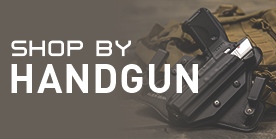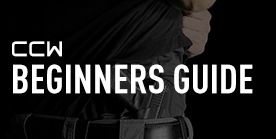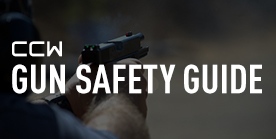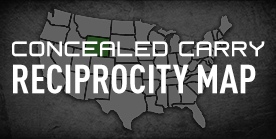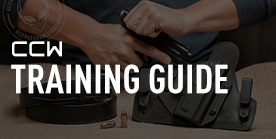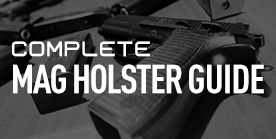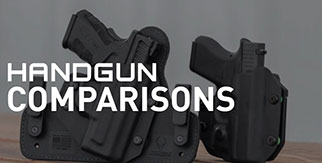.380 vs 9mm: Which is better?
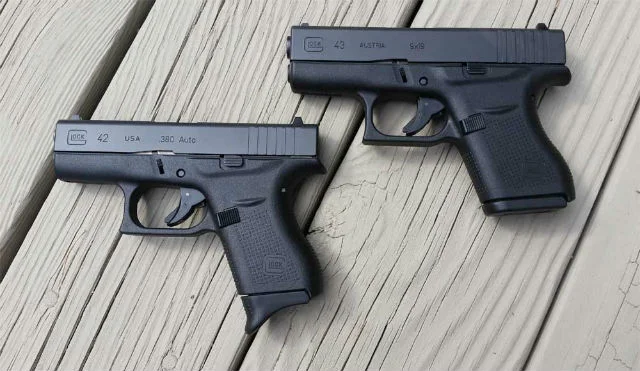
.380Vs 9mm: Which Is Better For A Pocket Pistol?
Any debate, discussion or otherwise about .380 vs 9mm is about the question if the reduced velocity and terminal performance makes it too ineffective to justify carrying a .380 pistol instead of a 9mm.
The answer?
It depends.
The slightly longer answer is that while .380 ACP is less powerful than 9mm, typical .380 pistols - micro pistols with very short barrels - are mostly to blame. However, careful ammunition selection, good marksmanship and prudent deployment can make a .380 viable for self-defense in the right circumstances.
Why Anyone Would Even Carry A .380 Anymore
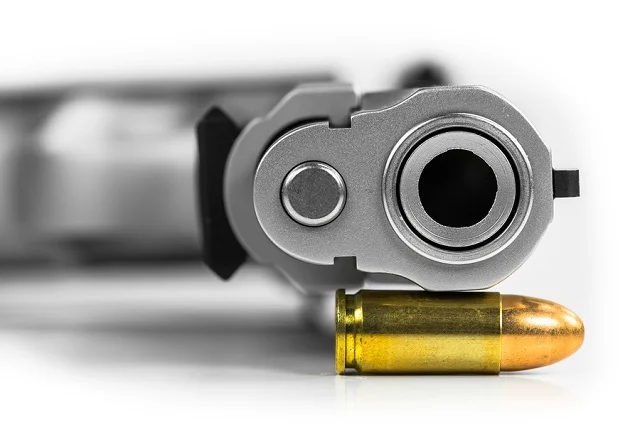
The reason someone would compare .380 vs. 9mm is for one of two reasons.
The first is to justify carrying a little pocket micro. They are very small, and there is a tradition in the US and elsewhere of carrying a tiny pistol in a pocket. A vest pocket gun was definitely a thing.
After all, Rule One of gunfighting is Have A Gun, and the tiny gun you have on you is better than the big gun you barely take out of the house.
The second is because .380 pistols generally speaking have lighter recoil and are easier to administratively operate than a 9mm pistol of comparable size, which usually is the case due to a .380 pistol required a lighter recoil spring.
An elderly person or perhaps a novice female shooter may not have the hand strength to easily pull the slide back on, say, a Glock 43 or a S&W Shield. By contrast, something like a Walther CCP 380 or a S&W Shield380 EZ is very easy to deal with, both in recoil (the CCP 380 has almost none; it's actually kind of amazing) and in terms of actuating the slide.
However, the reality is the subcompact 9mm pistols of today (single stacks like the Shield, PPS M2, 43; double-stack micros like the P365, Hellcat) are so compact and reasonably shootable that there's almost no reason to carry a .380 unless you physically can't handle them.
.380 is also more expensive.
The answer is that it depends and it's complicated! So let's dig into it.
380 vs 9mm Ballistics
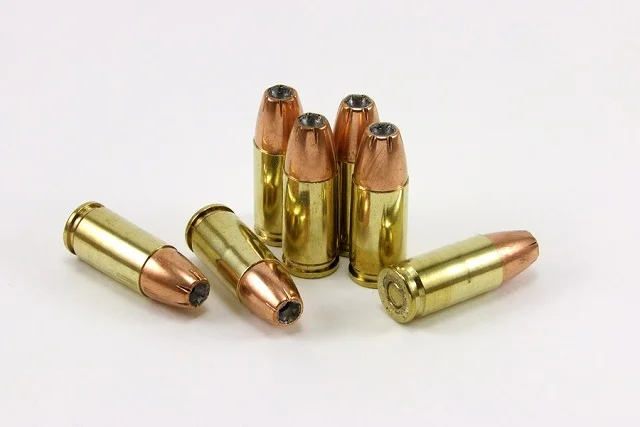
9mm is more powerful. The classic 9x19mm loading is a 115-grain projectile at around 1150 feet per second (give or take 50 fps) and around 340ish foot-pounds of energy.
Other common projectile weights are 124 and 147 grains, which are broadly comparable though the 147-grain loads are generally slower with typical velocities of 950 to 1000 fps and roughly the same energy.
The classic .380 ACP load is a 95-grain projectile at somewhere between 900 to 1000 feet per second, and 180 to 200 ft-lbs of energy. Other common loads are 85-, 90-, and 100-grain projectiles.
However, what you have to bear in mind is that barrel length affects projectile velocity. The shorter the barrel, the less pressure can build up behind the bullet and therefore the less velocity it will leave the muzzle with.
Since muzzle energy is dependent on muzzle velocity, less velocity = less energy = hits the target with less force.
To give you an idea of how much barrel length affects velocity, chronograph testing by Ballistics By The Inch for 90-grain Gold Dot JHP in .380 recorded 896 fps out of the 2.5-inch barrel of a Kahr P380, 922 fps out of the 2.7-inch barrel of a Sig P238, and 1020 fps from the 3.35-inch barrel of a Walther PPK/S.
By contrast, their tests of 9mm velocities of 124-grain Federal HydraShok JHP produced 927 fps from a Rohrbaugh R9 (2.9-inch barrel), 1035 fps from a Steyr S9 with a 3.6-inch barrel and 1115 fps out of a Beretta 92FS, which what a 4.875-inch barrel.
It's a heavier bullet at faster velocity, which generally speaking is more advantageous for defense as faster bullets and heavier bullets both tend to poke deeper holes in fleshy things. Strictly speaking, that does affect the effective range of the projectile;
And…well…that tends to show in the wash.
The 1989 FBI ammunition tests showed .380 didn't penetrate deeply enough, and substandard 9mm loads fared little better.
Lucky Gunner Labs test results (using a Glock 42 and ballistic gel covered by two layers of cotton, one of wool and one of denim) indicates most .380 defense loads either under-penetrate (failing to meet the 12-inch FBI standard) or fail to expand and overpenetrate. By contrast, their 9mm tests demonstrate a lot of 9mm loads live up to the FBI standard of 12 to 18 inches of penetration.
.380 Vs 9mm In The Real World

Does that mean you're undergunned if you carry a .380? Well…the answer is not quite so simple.
Greg Ellifritz's caliber study (tracking efficacy of various calibers in defensive shootings) found .380 was comparable in efficacy to 9mm. Despite all this testing and data that indicates .380 ACP doesn't work as well as 9mm, that it should not be effective on bad guys, the track record in the real world indicates it works about as well as 9mm does.
However…that comes with a boatload of context.
First, no major police department anywhere in the US currently issues .380 ACP as its primary duty round. We call that a clue. No major military anywhere in the world currently issues .380 ACP as its primary duty round. That is also a clue.
The bulk of terminal performance is placement. If the bullet doesn't hit something sensitive or vital enough, literally nothing else matters; you either hit the bad guy (or the target) or you didn't.
It's also the case that - as the FBI has put it - "underpenetration gets cops killed." There are instances where a bullet has failed to penetrate deeply enough to defeat an adversary that were to some extent caliber-related. Before the advent of modern bonded hollow points, 9mm JHP ammunition was known to be susceptible, typically because the depression in the lead core would clog with clothing.
The 1986 Miami shootout was an example. Various departments found .38 Special, which has comparable ballistics to .380 ACP, to sometimes lack for penetration in many instances and especially if fired from a J-frame or other snubby revolver.
So the real quick version goes something like this:
.380 ACP can be effective with good placement, but there's been a number of instances where weaker pistol bullets have failed to stop bad guys and .380 is pretty weak. So it's worth thinking about carrying a 9mm instead.
Caliber Mostly Doesn't Matter; Now Go Train

The reality is that almost everything about caliber is completely overblown, and especially in handguns.
All handgun calibers are glorified peashooters. ALL of them.
.243 Winchester has more energy at 200 yards than a .44 Magnum does at the muzzle and .243 Winchester is a dandified prarie dog cartridge. .30-06 (a proper gosh-darned rifle cartridge) has more energy at 900 yards than a .357 Magnum does at the muzzle.
Handguns are weak. Period. Caliber…basically anything relating to pistols is almost pointless to think about or talk about, unless there is something that a cartridge/caliber or the gun/guns that shoot it does for you that makes it necessary for you to have.
Whatever caliber or gun that you choose, go train with it. That's what makes the difference in competition, that's what makes the difference if you have to use it in self-defense. So get out there and shoot.
About The Author



